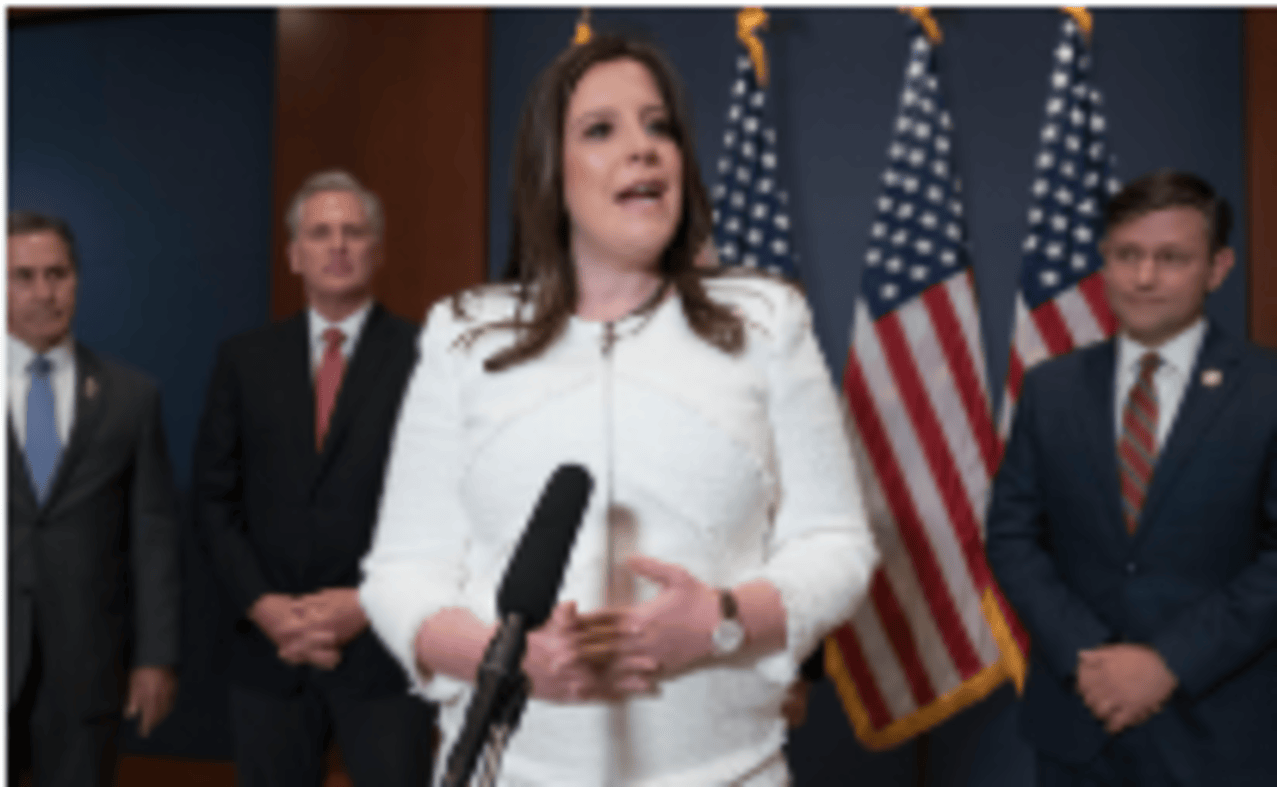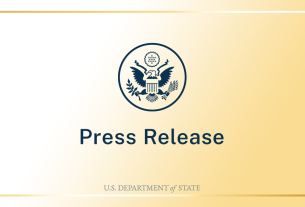Date: November 11, 2024
Rep. Elise Stefanik (R-NY) has been selected by President-elect Donald Trump to serve as the U.S. Ambassador to the United Nations (UN), according to multiple Trump administration sources. The announcement comes as part of a broader set of foreign policy appointments by Trump, who is seeking to shape U.S. international engagement after his election victory.
Stefanik, 40, has long been seen as a rising star within the Republican Party, known for her moderate views on some domestic issues and her staunch conservative positions on national security, defense, and foreign policy. As the youngest woman ever elected to Congress when she first won a seat in 2014, she has built a reputation as a skilled political operator with a keen understanding of both policy and politics. Below is a deeper look into her career, her political views, and what her appointment as U.S. Ambassador to the UN means for U.S. foreign policy.
Background and Early Career
Elise M. Stefanik was born on July 2, 1984, in Albany, New York. Raised in a politically active family, she graduated from Harvard University with a degree in government in 2006. After college, Stefanik worked as a staffer for the House Armed Services Committee and served as an assistant to Paul Ryan, the former Speaker of the House, helping to shape policy on national security, defense, and military issues.
Before entering Congress, Stefanik was involved in various policy advocacy roles, including working as a public relations director for a think tank focused on defense and foreign policy. Her early career in policy circles led to her being recognized as a strong advocate for defense modernization and economic diplomacy—issues that would become key themes in her later congressional work.
Political Rise and Congressional Career
Stefanik’s political rise came in 2014, when she was elected to the U.S. House of Representatives in a highly competitive race for New York’s 21st Congressional District. At the time, she became the youngest woman ever elected to Congress at the age of 30, breaking a significant barrier in U.S. politics. She was seen as a member of the new generation of conservative women in the Republican Party.
Since her election, Stefanik has represented upstate New York, a traditionally swing district, which has given her a pragmatic approach to legislation. While she is generally considered a moderate Republican, she has made her name as a strong supporter of defense spending, military interventionism, and U.S. leadership on the global stage—all of which align with her new role at the United Nations.
Foreign Policy Focus and Stance
As a member of the House Armed Services Committee and House Intelligence Committee, Stefanik has been an outspoken advocate for strengthening U.S. military presence abroad, with a specific emphasis on counterterrorism efforts and countering Chinese and Russian influence. She has strongly supported U.S. efforts to contain North Korea’s nuclear ambitions and has consistently backed Israel in its conflicts with Palestinian groups.
Stefanik has also championed the global role of the United States, especially in terms of its leadership on international institutions like the UN. She has supported U.S. membership in multilateral organizations, arguing that they serve both American interests and promote global stability. This view, along with her emphasis on military alliances, likely aligns with President-elect Trump’s desire to ensure that the U.S. has a dominant role in global institutions and prevents any erosion of its influence.
Her record suggests that she will be a staunch defender of U.S. interests at the UN, potentially advocating for a more confrontational stance against adversaries like China, Russia, and Iran, while also emphasizing the need for accountability within international organizations.
Domestic Political Influence and Appeal
Stefanik’s appointment reflects her growing influence within the Republican Party. She has positioned herself as a key ally of Trump, particularly during his impeachment trials, where she played a prominent role in defending his actions on the House Intelligence Committee. Her strong performance during these hearings earned her recognition from both Republican colleagues and Trump’s supporters.
Stefanik has also made a name for herself in the Republican Party’s efforts to attract more women into political roles. Her appointment as UN Ambassador would continue this trend, as she represents a blend of conservative values and a younger, more diverse face of the Republican Party. Her personal story—breaking barriers as a young woman in politics—has made her a role model for many, particularly within the GOP’s moderate wing.
Implications for U.S. Foreign Policy
Stefanik’s selection as Ambassador to the United Nations comes at a crucial time, as the U.S. seeks to reassert its global leadership after a period of America First policies under Trump’s predecessor. Stefanik is expected to prioritize several key areas:
- Defense and Security: Stefanik will likely work to ensure that the UN remains a critical forum for addressing issues related to global security, particularly counterterrorism and military intervention. She has been a staunch advocate for increasing defense spending and bolstering U.S. military readiness.
- China and Russia: A key aspect of Stefanik’s tenure will likely focus on countering the influence of China and Russia at the UN. She has been outspoken about both nations’ human rights abuses and their efforts to undermine U.S. policies in the global arena.
- Humanitarian and Development Aid: Stefanik is expected to push for American leadership on humanitarian issues, while also emphasizing the need for fiscal responsibility in U.S. contributions to the UN. Her approach may involve advocating for increased transparency and efficiency in UN operations.
- Middle East Policy: Stefanik is expected to continue the U.S.’s strong support for Israel at the UN, as well as advocate for a tough stance on Iran’s nuclear ambitions.
Criticism and Challenges
Despite her qualifications, Stefanik’s appointment may face some challenges both domestically and internationally. Some critics of Trump’s foreign policy are concerned that Stefanik’s hawkish stance could exacerbate tensions at the UN, particularly with Russia and China. Additionally, her limited experience in diplomacy, especially at the global level, may raise questions about her ability to navigate the complexities of international relations.
Stefanik’s critics may also point to her partisan record and strong ties to Trump, questioning whether she can effectively represent all U.S. interests at the UN, especially in an increasingly polarized international environment.
Conclusion
Elise Stefanik‘s appointment as U.S. Ambassador to the United Nations underscores her rising influence within the Republican Party and her alignment with President Trump’s vision for reasserting U.S. power on the world stage. With a background in defense and foreign policy, she is poised to advocate for a more assertive U.S. role in global governance, with a focus on security, humanitarian issues, and countering adversaries. As she prepares to take on this significant diplomatic role, all eyes will be on how she navigates the complex political and diplomatic challenges at the UN.



